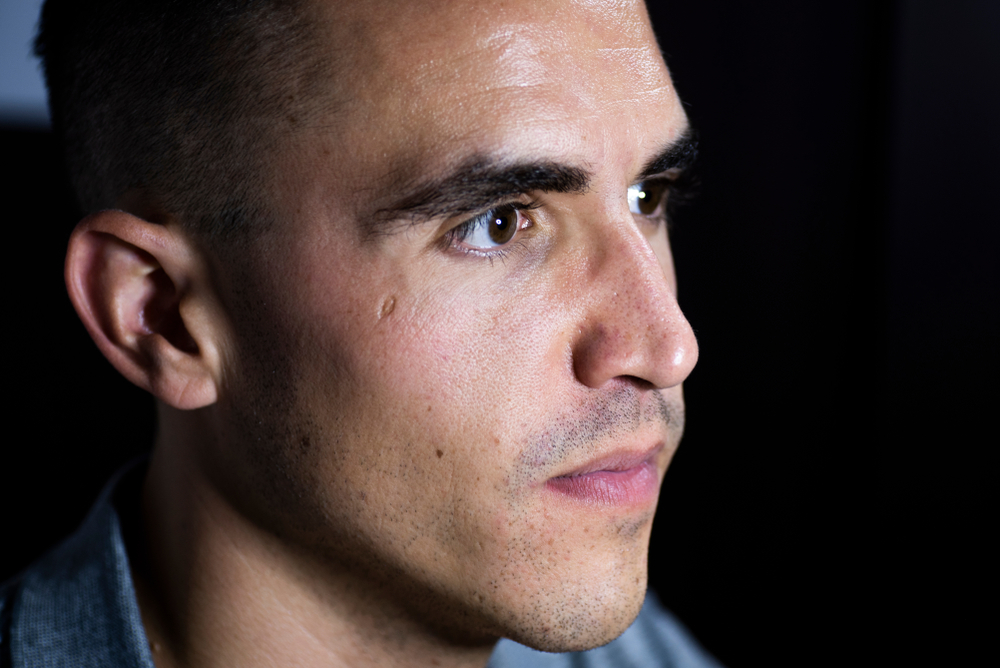There are different levels of lying — little white lie to spare someone’s feelings is vastly different from a major deception with serious consequences. Your reaction hinges on things like the severity of the lie, the intent behind it, and your history with this person. There’s no one-size-fits-all response here, but here are some responses that can help protect you emotionally.
1. Don’t react in the heat of the moment.

That initial rage or hurt makes you want to explode, or possibly shut down completely. Resist the urge! You need time to process the full situation. “I need some space to think about this” is perfectly fine. Remove yourself, breathe, and collect your thoughts. Knee-jerk reactions rarely lead anywhere good, Forbes reminds us.
2. Assess the severity of the lie.

Did they fudge about attending an event they hated, or hide something financially devastating? The scale matters! Sometimes the sting isn’t about the lie itself, but what it represents. Did it reveal a pattern of dishonesty, or was it a genuinely isolated incident? This should help you decide how to respond.
3. Consider the intent behind the lie.

Were they trying to hurt you, protect themselves, avoid an inconvenient truth, or simply spare your feelings? Intent doesn’t excuse the lie, but it helps you understand the situation. Malicious lying is different from misguided attempts at kindness, even if both ultimately do damage.
4. Get the full story, if possible.

Did you discover the lie, or did they confess? If you uncovered it, there might be missing pieces. Having a big confrontation before hearing their side often backfires. Notice how they react when the lie is exposed. Defensiveness, minimizing, or deflection are red flags, indicating little remorse.
5. Reflect on your own role, if any.

This is tough, but important. Do you create an environment where people feel afraid to tell you hard truths? Is there a pattern where you overreact to minor things, which makes them resort to lying? This isn’t about blaming yourself for their dishonesty, but recognizing if there’s a dynamic at play that needs addressing.
6. Decide if direct confrontation is worth it.

Sometimes, avoiding drama is self-preservation. If this person is a chronic liar, unlikely to change, or the lie itself is small potatoes… calling them out might just give them narcissistic supply. Quietly distancing yourself can be the most empowering response.
7. If you confront them, focus on the impact of their actions.

Avoid character assassinations and stick to the facts. “I know you did X, despite telling me Y. This hurt/damaged/etc., and it shakes my ability to trust you going forward.” This makes it about consequences, not a debate over whether they’re a good or bad person.
8. Don’t expect an apology, but note their response carefully.

Genuine remorse looks like taking ownership, validating your feelings, and offering sincere amends, Psychology Today explains. Anything less is just manipulation. Defensiveness, playing the victim, or minimizing your hurt are clear signs they haven’t truly learned from this.
9. You don’t have to decide about the future of the relationship immediately.

Need time to mull over whether this is fixable? That’s totally valid! “I need to think about where we go from here” is fine. Forgiving someone and rebuilding trust are separate decisions, with no need to rush them. Don’t let anyone pressure you into immediate absolution.
10. Set crystal-clear boundaries.

Lying destroys trust, so rebuilding it requires new rules. Maybe it’s more transparency about their whereabouts, access to their phone in the early stages of repairing things, or being unwavering about walking away if they lie again. Boundaries protect you, regardless of their promises to change.
11. Focus on actions, not just words.

Apologies are a start, but meaningless without changed behavior. Are they actively demonstrating increased trustworthiness? Promises are cheap, it’s what they consistently do that tells you whether this relationship is salvageable.
12. Be prepared for the possibility of them slipping back into old patterns.

Especially with chronic liars, it’s hard to break habits. Don’t lose hope, but also don’t be naive. If they’re putting in the genuine work, you’ll see it over time. One good week followed by more lying means nothing fundamentally changed.
13. Trust issues aren’t a sign of personal weakness.

If you find yourself more suspicious in general after being lied to, that’s normal! It’s a protective mechanism. Remind yourself that other people are not necessarily like the one who betrayed you. The goal is cautious optimism, not total cynicism.
14. Forgiveness is about you, not them.

Holding onto anger hurts you more in the long run, Verywell Mind notes. Forgiveness doesn’t mean excusing what they did, or that the relationship is automatically fixed. It’s about releasing the bitterness that takes up space in your heart, so you can move forward with peace.
15. You are allowed to walk away, even if you love them.

Sometimes, the damage is too deep, or they’re unwilling to do the hard work of rebuilding trust. Loving someone isn’t enough to sustain a relationship. Refusing to tolerate recurring lies is an act of self-love, even if it’s initially painful.
16. Therapy can be incredibly helpful during this process.

Betrayal can be a form of trauma. Working through it with a therapist gives you a safe space to process the emotions, unpack trust issues, and learn healthy coping tools. This benefits not only this relationship, but your future ones as well!
17. Trust your gut going forward.

If, despite their best efforts, that sense of unease lingers over time, listen to it! Our intuition often picks up on subtle cues of dishonesty, even when we consciously try to override it. Doubt that won’t go away is your inner wisdom trying to protect you.
Enjoy this piece? Give it a like and follow PsychLove on MSN for more!



